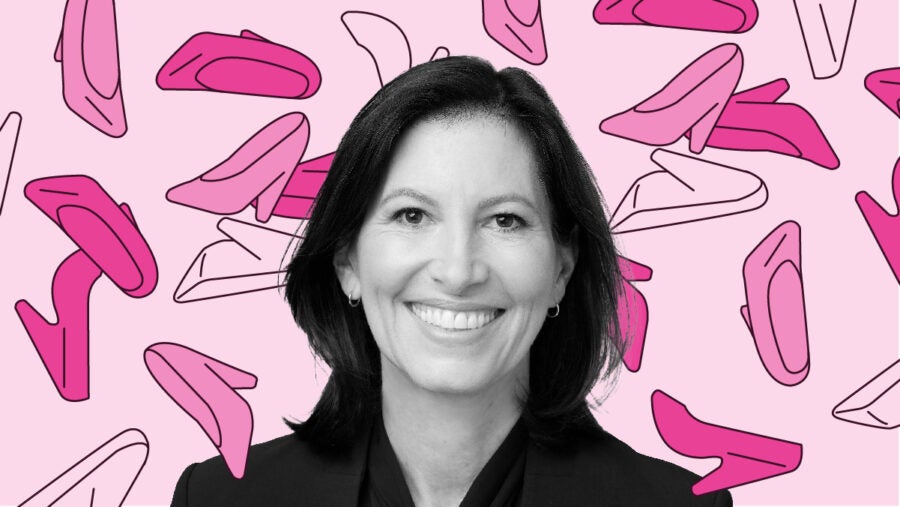
The rows of grey cubicles in the fictional Mattel offices of Greta Gerwig’s Barbie movie are a far cry from the company’s real HQ in El Segundo, California, where staff are greeted by go kart-sized Hot Wheels cars in the foyer and a giant Magic 8 Ball that promises to tell your fortune.
Likewise, Will Ferrell’s slapstick interpretation of a S&P 400 toy company CEO bears little resemblance to Mattel’s real boss Ynon Kreiz. Mattel’s representatives are not taking it personally, however. “We are self aware and we can appreciate the jokes,” says Lisa McKnight, the company’s chief brand officer. “The minute that [Gerwig] cast Will Ferrell as our CEO and we saw the way she was having fun with Mattel, we were supportive.”
On reflection, it’s unsurprising that Kreiz and his fellow Mattel executives were happy to poke fun at themselves in Barbie. The film was the biggest box office hit of 2023, grossing nearly $1.5bn (£1.18bn) worldwide, has been nominated for nine Golden Globes and propelled the company’s leading product back into the cultural zeitgeist.
Why Mattel took risks on the Barbie film
For Mattel, Barbie represents the culmination of its business transformation strategy. First devised in 2018, Kreiz sought to reverse the company’s declining retail sales by pursuing new ways to leverage its intellectual property – primarily through partnerships with Hollywood studios.
McKnight admits that this change of focus came with its own risks. “We have always believed in the power of Barbie. She’s the number one doll property in the world and has 99% brand awareness, so we knew if anyone could break records it would be Barbie. But at the same time this was new territory for us.”
This was the first time Mattel’s doll would feature in a theatrical live-action release and, with 14 other films based on Mattel’s intellectual property in the pipeline, there was pressure on Barbie to succeed.
McKnight, who was heading up Mattel’s dolls division when the idea of a Barbie film was first suggested, also felt a keen sense of responsibility when it came to ensuring the film had the desired impact. “As a brand steward, I wanted to make sure this wasn’t the last film we created,” she explains. “We’ve told many Barbie stories through the years, but this felt new because it was aimed at a broader audience.”
Other scripts were considered by Mattel but “nothing really hit the mark”, according to McKnight. Mattel’s intention was never to create a glorified toy commercial. “We wanted to create art, we wanted to create a cultural conversation,” she says. “It wasn’t until we were introduced to Margot [Robbie] and the LuckyChap team [her production company], and then ultimately Greta [Gerwig], that we knew we had the right talent and the right idea,” she adds.
As a brand steward, I wanted to make sure this wasn’t the last film we created
McKnight kept a close eye on production, visiting the set four times to answer questions, review castings and assist with set design and costumes. “We had a lot of involvement in terms of brand stewardship,” she says. “My role was to educate them on all things Barbie… I always had a brand hat on when providing my perspective.”
Although McKnight describes the overall experience as a “fun provocation” and stresses the trust and faith she had in Robbie and Gerwig, she admits that there were points where she felt “uncomfortable”. For example, one of the characters says an expletive towards the end of the film and Mattel had to request that it be bleeped out.
“As a company that’s trusted by families and fans, we felt like that would have been a bit too much to have in the actual film,” McKnight explains. “We do have some guardrails that we have to be conscious of.”
The Barbie boost
Any fears McKnight may have had were put to rest the first time she saw the end result. “It was goosebumps all around,” she says. “When I saw people laugh and get emotional and heard the murmur of conversation… it was such a pinch me moment. I couldn’t have been more proud.”
Barbie’s incredible success at the box office has been followed by improved sales for its plastic counterpart too. In Mattel’s latest quarterly financial update, sales of its top-selling doll were up 16% to $605m (£477m), when compared to the same period last year.

“The Barbie movie could not have been a better proof point in our strategy to show that there is true value in unlocking the full potential of our IP,” McKnight says. “We want to fuel fandom, which will ultimately unlock more commercial opportunities.” Mattel was engaged in over 165 brand partnerships in connection to the Barbie film and there are plans to explore opportunities in gaming, branded experiences and lifestyle products in the future.
“We’ve opened up our business to a broader fan base now,” McKnight adds. “Millennials are now thinking about Barbie and Ken in a new way and I’m really excited to see the long-term benefit that this broader audience brings to us.”
Handing over the licence to use Mattel’s most valuable property must be done with care, according to McKnight, and Mattel has a set of style guides that any partners must comply with. However, the business is getting “more comfortable letting people play with us,” she adds. “We love a good collaboration and we’re appreciating more and more the value of handing over the brand to partners and letting them express themselves.”
It’s clear from the rumours surrounding Mattel’s confirmed upcoming films that the company is open to more experimentation. These include a comedy-slash-horror film centred on Mattel’s Magic 8 Ball, a “surrealistic” project based on the purple dinosaur Barney, an Uno-themed heist flick and a JJ Abrams-produced Hot Wheels live-action movie.
Meanwhile some less well-known brands, such as Rock ‘Em Sock ‘Em Robots and the dormant property Major Matt Mason are also set to get their own movie makeovers. “It took us 64 years to create the right story for Barbie and it was certainly not an easy task, so some of these properties might actually be more straightforward,” McKnight says. “I’d love to say that everything’s going to be as big as Barbie but I think each of these movies is going to be a breakthrough in its own way.”
What comes next for Mattel?
Although McKnight stresses that the toy business remains “foundational” to Mattel, the company is facing challenging macroeconomic conditions that are dampening sales of its core products.
Third-quarter profits at the company were down by almost 50% and, while Mattel’s doll sales are up this year, any added income has been wiped out by a 31% decline in sales of its action figures, building sets and games.
The Barbie movie could not have been a better proof point in our strategy
As a result, McKnight foresees sales from its licensed products growing at a faster pace than toy sales over the next few years. “There are lots of opportunities in toys,” she adds. “But at the same time, we want to diversify and we want to make sure that we’re meeting consumers where they are.”
There is also a real drive for the business to capitalise on its newfound success in the entertainment space. Michelle Mendelovitz, who has previously held roles with Disney and Apple, was recently recruited to head up Mattel’s television studios division and as many as 45 of its toy brands have been linked with future film releases.
“We have a vault of brands that we’re looking to revitalise,” McKnight adds. “We definitely see ourselves as an IP-driven company.” The next step in this strategy is to make Mattel more of a consumer-facing brand, according to McKnight, and turn the company from a house of brands into a branded house.
“As we’ve started to think broadly about our brands as IP and as ideas, it allows us to have a much broader audience,” McKnight says. “If we can get to a point where the entire company is equally weighted, that would be incredibly exciting.”

The rows of grey cubicles in the fictional Mattel offices of Greta Gerwig’s Barbie movie are a far cry from the company’s real HQ in El Segundo, California, where staff are greeted by go kart-sized Hot Wheels cars in the foyer and a giant Magic 8 Ball that promises to tell your fortune.
Likewise, Will Ferrell’s slapstick interpretation of a S&P 400 toy company CEO bears little resemblance to Mattel’s real boss Ynon Kreiz. Mattel's representatives are not taking it personally, however. “We are self aware and we can appreciate the jokes,” says Lisa McKnight, the company's chief brand officer. “The minute that [Gerwig] cast Will Ferrell as our CEO and we saw the way she was having fun with Mattel, we were supportive.”
On reflection, it’s unsurprising that Kreiz and his fellow Mattel executives were happy to poke fun at themselves in Barbie. The film was the biggest box office hit of 2023, grossing nearly $1.5bn (£1.18bn) worldwide, has been nominated for nine Golden Globes and propelled the company’s leading product back into the cultural zeitgeist.





